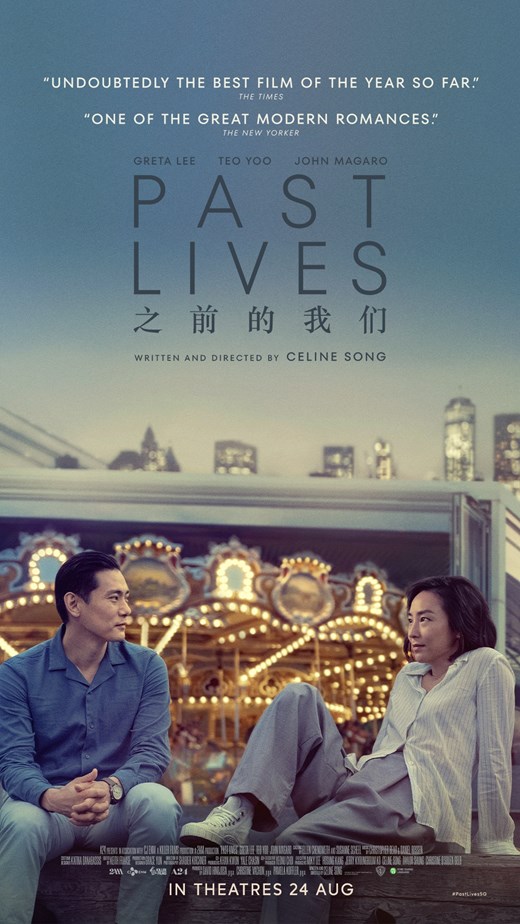Are people fated to have just one soulmate? Director Celine Song tackles this philosophical debate in her directorial debut, “Past Lives.”
“Past Lives” features Nora Moon (Greta Lee) as she reconnects with her childhood friend, Hae Sung (Tae Yoo), decades after her family left South Korea for Canada. The two resume their friendship cross globally through the then-innovative creations of social media and Facetime 12 years later.
However, both Nora and Hae Sung must reconcile with how much Nora’s life and her identity have changed. Hae Sung has resumed his own life in South Korea, studying to be an engineer. In comparison, Nora has immigrated twice, has great dreams of becoming a playwright in New York and has gone through many metamorphoses. She admits that she only speaks Korean with her mom. Nora also changed her name into a more Westernized version upon immigrating, which became the main reason that Hae Sung could not find her sooner.
Ultimately, they lose contact again as they try to advance in their respective careers. Nora is a writer who goes on a writing retreat in the Hamptons, while Hae Sung goes to China to learn Mandarin. They cannot find time to call, let alone meet in person, so they decide to stop talking as frequently. While they were never in a relationship themselves, they began to pursue other partnerships.
As the viewer, this fate seemed almost inevitable but it was heartbreaking nonetheless. Their revitalized friendship was so endearing, almost giddy in nature. The Facetime calls were one of my favorite parts of the movie, as they were embedded with awkward reconnection and hopeful connection.
This is another facet of filmmaking that sets Song apart from her contemporaries. Her shots are simplistic and unfanciful, yet symbolize the liminality of this relationship. Even the motion of the camera portrays this stagnance. It is through the editing and cuts of the shots where most of the symbolism appears.
However, there is no denying what they externally represented to one another. For Nora, it seemed that Hae Sung was a tie to her childhood and her culture, one that she had been separated from at a young age. Alternatively, Hae Sung views this relationship as a great, almost mystical, love affair. Something to propel him out of his self-proclaimed ‘ordinary’ life.
Another 12 years pass and Hae Sung finally makes it to visit Nora in New York. Yet, Nora has gotten married to a fellow writer. Both must determine how their relationship will unfold as they finally meet again, 24 years later.
Song’s character-driven, semi-autobiographical work is an incredibly well-written movie that focuses on the inner workings of relationships to others and oneself.
It subverts the concept of what a “fated” love story should be, rather acknowledging the reality that partnerships do require pragmatism and convenience. Together, they shed the childlike desire for the “happily ever after” into something more tangible but equally as beautiful.
The most compelling characteristic of the movie is the shared humanity and maturity of its characters. These characters find themselves in difficult and sometimes awkward circumstances, yet move through them with vulnerability and grace. As Nora and Hae Sung reevaluate their relationship, Nora’s husband Arthur remains a supportive anchor despite his own insecurity. All of the characters find their strength in open and constructive communication.
And the actors do a wonderful job of portraying the variance of emotion, which was crucial with such a character-heavy plot. Actor Teo Yoo does a brilliant job at portraying Hae Sung’s loneliness during his initial moments in New York. You can clearly see his uncomfortableness and hesitation eating alone in the hotel, reflecting his position in Nora’s life.
It is a movie that ultimately lets go of the “what could be,’” in order to make way for the realities of this lifetime. It is a concession to circumstance, but an acknowledgment of our past lives.
5/5







